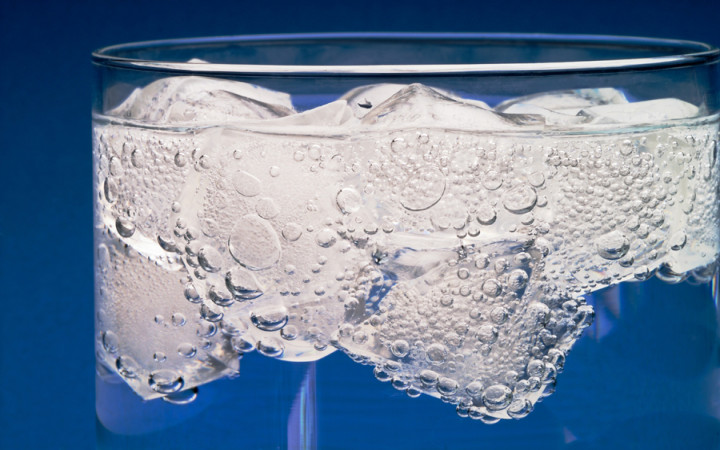Today’s Wonder of the Day was inspired by Tianna. Tianna Wonders, “why do icecubes float in water?” Thanks for WONDERing with us, Tianna!
When you've been playing outside all afternoon, there's nothing better than relaxing at the kitchen table with a tall glass of ice water. There's something about the clink of the ice cubes as they hit the bottom of the glass. As you pour water over them, they hiss and crackle a bit as they slowly float to the top of the glass.
Have you ever thought about what a curious concoction ice water is? It's literally solid water floating in liquid water. How cool is that? (Pun totally intended.) But why does the ice float in water?
Scientists will tell you it has to do with density, which is a measure of mass per unit of volume. Ice floats because it is less dense than the water.
Something denser than water, like a rock, will sink to the bottom. To be able to float, an object must displace fluid with a weight equal to its own weight.
The fact that ice floats in water is a bit strange, because most substances are denser when they're solids. Water, however, reaches its maximum density at 40º F (4.4º C). As water cools and freezes, it becomes less dense due to the unique nature of hydrogen bonds.
Each molecule of water consists of one oxygen atom strongly bonded to two hydrogen atoms with covalent bonds. This fact is reflected in the chemical formula for water: H2O.
Water molecules tend to be attracted to each other by weaker hydrogen bonds. These form between the positively-charged hydrogen atoms and negatively-charged oxygen atoms in nearby water molecules.
As water temperature decreases, the weaker hydrogen bonds begin to hold the negatively-charged oxygen atoms apart, forming a rigid crystal honeycomb structure we call ice. The water molecules in ice take up about 9% more space than liquid water, which means ice is about 9% less dense than water.
If you have a gallon of ice and a gallon of water, the gallon of ice will weigh less than the gallon of water. When you put the ice into the water, the denser water pushes the ice to the top where it will float.
This unique property of water is especially beneficial for fish that live in bodies of water that freeze in the winter. Because ice floats, bodies of water freeze from top to bottom. This allows fish to survive deep underwater even when the surface freezes!





